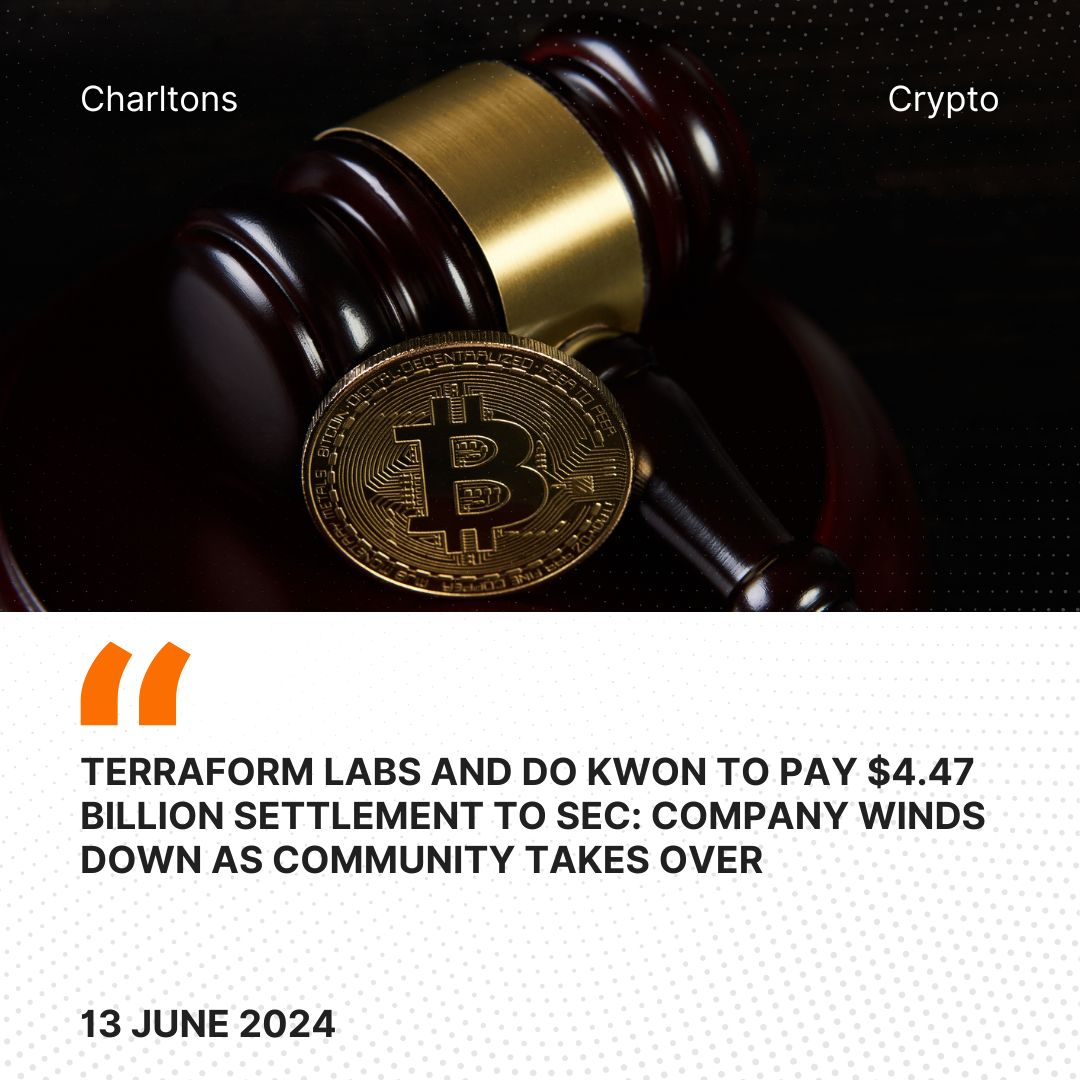
On June 12, 2024, Terraform Labs, the firm behind the defunct LUNA and TerraUSD, along with co-founder Do Kwon, reached a monumental settlement agreement with the U.S. Securities and Exchange Commission (SEC). This settlement, a culmination of a civil fraud lawsuit, requires the company to pay a staggering $4.47 billion, including a $3.58 billion disgorgement fee and a $420 million civil penalty.
The settlement terms include disgorgement of $3.5 billion and pre-judgment interest of $466 million, summing up to $4.47 billion. Additionally, Do Kwon faces a separate settlement fee of $204 million. This deal also restricts Kwon and Terraform Labs from selling or acquiring cryptocurrency assets, particularly those within the Terra ecosystem.
The SEC’s case, which dates back to February 2023, accused Terraform Labs and Do Kwon of unregistered securities sales and investor fraud related to their stablecoin project sets a precedent for how future crypto-related disputes might be resolved.
Following the settlement news, Terra Luna Classic (LUNC) experienced a slight uptick, rising by 3.73% after a previous week-long decline of 11%. This rebound is partly attributed to community-driven initiatives, such as a proposed new burn tax distribution for the token.
As Terraform Labs prepares to wind down operations, CEO Chris Amani announced that Terra will transition to a community project. In a June 12 statement, Amani urged the community to “take over ownership of the chain.” He noted that certain teams and developers are eager to manage the project and will announce their plans on public forums.
Amani emphasized that Terraform Labs had “always intended to dissolve” and, following the SEC settlement, can now proceed with this plan. Despite the settlement, Terraform Labs will continue operating its products during the wind-down period and plans to sell Pulsar Finance, Station Protocol, and Enterprise Protocol.
The settlement has sparked reactions across the industry. Coinbase Chief Legal Officer Paul Grewal criticized the outcome, as it benefits the SEC rather than the fraud victims. He noted that the settlement essentially makes the SEC an unsecured creditor in Terraform Labs’ bankruptcy case. Grewal remarked, “There’s zero meaningful relief to fraud victims. This is no way to regulate.”
Similarly, Messari CEO Ryan Selkis denounced the settlement amount, suggesting it should benefit a victims’ restitution fund instead of the SEC. He argued that any other outcome should result in SEC Chair Gary Gensler facing severe consequences.
Transitioning Terraform Labs to community ownership is a strategic move to ensure the decentralization of the project, aligning with broader regulatory expectations for crypto companies. Bringing governance on-chain means utilizing blockchain technology to facilitate transparent and tamper-proof decision-making processes. Sufficient Decentralization through Community ownership can mitigate regulatory scrutiny by distributing control and decision-making power among a broader group, reducing the risk of centralized mismanagement.
How legal disputes in the crypto sector are resolved by transitioning to community ownership and embracing on-chain governance could set a new standard for regulatory compliance and operational transparency in the crypto industry. As Terraform Labs moves forward, its success will depend on the community’s ability to manage and innovate within the established legal frameworks, ultimately shaping the future of decentralized projects.





